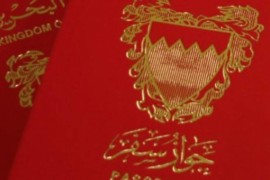On Saturday 20 April 2019, King Hamad bin Isa Khalifa reinstated the citizenship of 551 individuals who had lost it for criminal convictions.
This order applies strictly to people whose nationality was revoked by a court order. None of the individuals who were stripped of their nationality by royal decree or ministerial order were concerned by this measure.
This decision comes just a few days after the mass trial on 16 April 2019, where the High Criminal Court of Bahrain revoked the citizenship of 138 out of the 139 people sentenced for terrorism-related charges. The mass trial had indeed raised international concern as the UN High Commissioner for Human Rights Michelle Bachelet’s statement shows.
Since 2012, 990 Bahrainis were denationalised, meaning that currently 439 Bahraini-born are stateless. Legally, the Citizenship Act of 1963 established that a person may only be deprived of their citizenship if they enter the military service of a foreign country, help or engage in service of an enemy country, or cause harm to the security of the State. Nevertheless, the government amended the Citizenship Act in 2014 to include revocation of citizenship if a person “causes damage to the interests of the Kingdom and if he committed a disloyal action against the Kingdom.” This would include a conviction for terrorist acts, which are very broadly defined in the counter-terror Law of Bahrain, enabling authorities to sentence human rights defenders and political opponents.
The practice of revoking one’s citizenship as a reprisal of one’s activism has increased since 2011. This issue was stressed several times by the European Parliament throughout the years in parliamentary questions and resolutions.
The European Centre for Democracy and Human Rights (ECDHR) welcomes the King’s order to reinstate citizenship of 551 convicts but remains highly concerned about the citizenship deprivation practice in the country. ECDHR calls on Bahrain to stop using this practice as a reprisal of human rights activities and to reinstate all the remaining individuals who were denaturalised unfairly.

